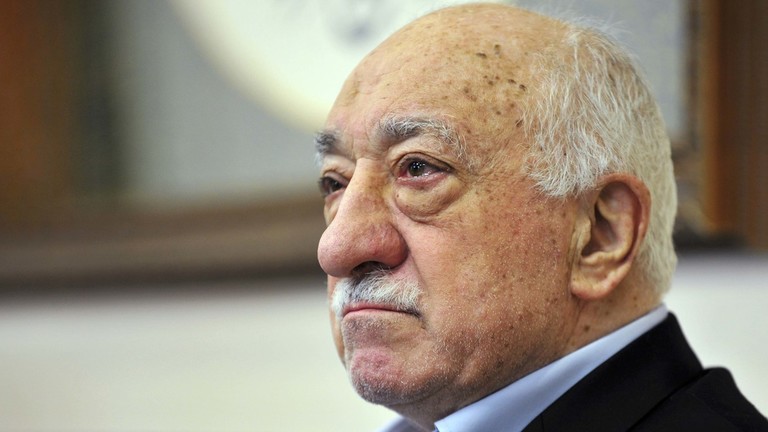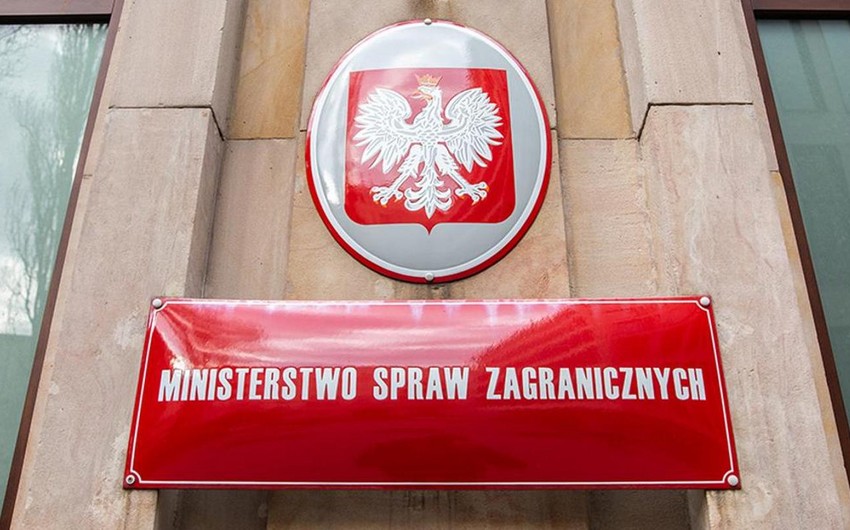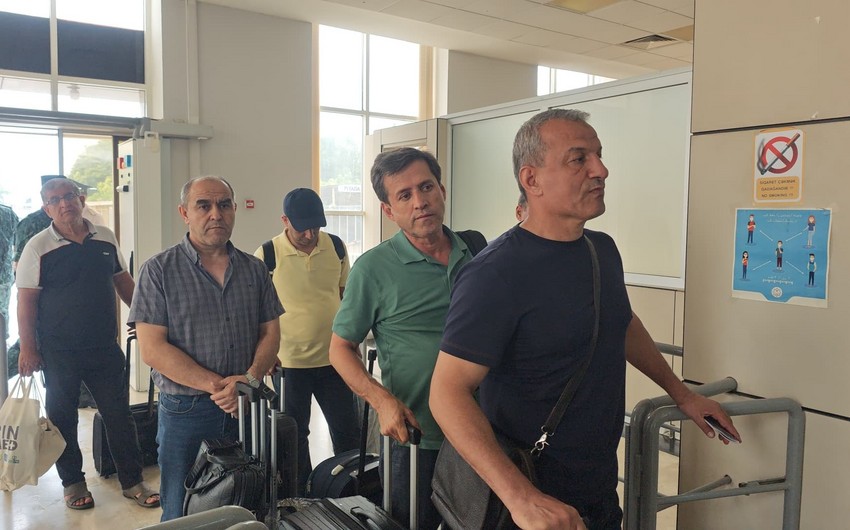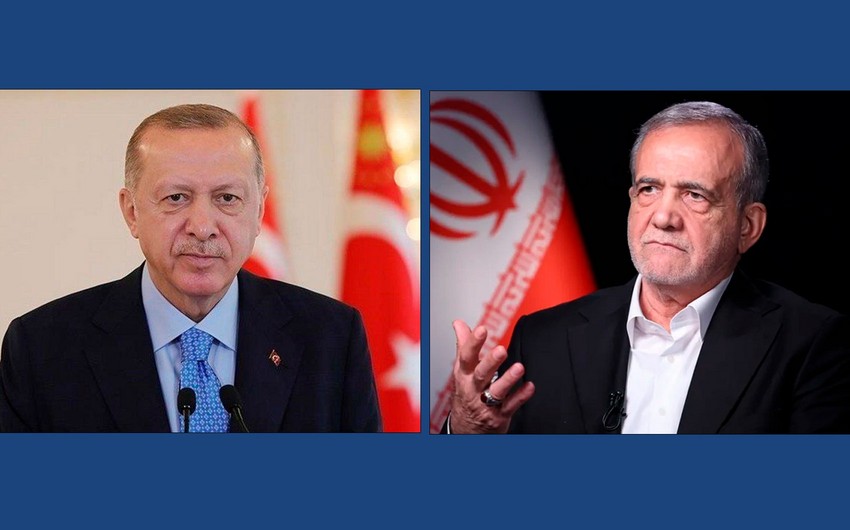Turkish Islamic preacher Fethullah Gülen, whom Ankara’s authorities accused of orchestrating the failed 2016 coup attempt, has passed away at the age of 83 in the United States, where he had spent the final years of his life. His death was reported by Turkish media and Herkul, a website associated with the preacher and his movement.
According to Herkul, which had published Gülen’s sermons and speeches for many years, he passed away on Sunday evening in a hospital where he had been receiving treatment. In his final years, Gülen struggled with a series of serious health issues, including kidney failure and diabetes, which significantly weakened him.
Residing in Pennsylvania for many years, Gülen was a figure of immense interest not only in religious circles but also in Türkiye’s political landscape, where his movement was seen as a national security threat after the attempted coup. The Turkish government had repeatedly demanded his extradition, accusing him of creating a “parallel state” and engaging in subversive activities against the Turkish leadership.
Gülen’s death was also confirmed by his nephew, Ebuseleme Gülen, via social media. Turkish Foreign Minister Hakan Fidan further corroborated the news, stating that the information was received from Turkish intelligence services. “Our intelligence sources confirm these reports,” he said in his remarks about the preacher’s passing.
Fethullah Gülen was one of the most influential Islamic thinkers of the modern era and the founder of the Hizmet movement (which translates from Turkish as “service”). He was born on April 27, 1941, in the small village of Korucam, Türkiye. From a young age, Gülen immersed himself in Islamic traditions, drawing inspiration from theologians such as Said Nursi. Nursi’s ideas left a profound impact on him, laying the foundation for Gülen’s own philosophy on the role of religion in the modern world.
The Hizmet movement’s ideology places a strong emphasis on education, moral values, and service to society. Gülen believed that Islam could coexist with Western democratic and secular principles and that through dialogue and mutual respect, harmony between different cultures and religions could be achieved. He stressed the importance of tolerance, intercultural dialogue, and social responsibility.
One of the key aspects of the movement’s activities was the establishment of an extensive network of schools and educational institutions worldwide. Hundreds of schools, universities, and cultural centers were founded by Gülen’s followers, both in Türkiye and abroad. These institutions, largely secular in nature, focus on preparing students to face global challenges while maintaining a strong foundation of moral values. The movement holds that quality education is essential to addressing many of contemporary society’s issues.
Social service organizations associated with the Hizmet movement have been deeply involved in charitable work and social assistance. Their programs provide essential support to those in need, including the construction of schools in remote areas, ensuring access to clean water, and offering medical services. These humanitarian efforts form a core part of the movement’s philosophy, reflecting its commitment to service and social responsibility.
Although Gülen and his followers emphasize the apolitical nature of the movement, over time it inevitably became politically influential within Türkiye. The members of the movement, often referred to as the “cemaat,” sought to build a modern Muslim community grounded in the principles of Western democracy, while at the same time rejecting radical interpretations of Islam. They advocated for a progressive vision of society where Islamic values could coexist with secular governance.
Many Gülenists eventually assumed significant roles within Türkiye’s state institutions, including key positions in law enforcement and the judiciary. This growing influence led to intense controversy. For some, the Hizmet movement symbolized a modern version of Islam that could thrive in a globalized world. For others, it represented a shadowy organization with political ambitions, seen as a potential threat to the country’s secular order.
Fethullah Gülen himself left Türkiye for the US in 1999, seeking refuge from increasing pressure being applied on him by the Turkish authorities, who accused him of undermining the secular state. Settling in Pennsylvania, Gülen continued to guide his global movement, which rapidly expanded across many countries, creating a network of educational institutions, charities, and cultural organizations.
Initially, the relationship between Gülen and Türkiye’s current president, Recep Tayyip Erdoğan, was cordial and cooperative. In the early 2000s, Gülen’s followers offered significant support to Erdoğan and his Justice and Development Party (AKP), helping solidify his political power. Although Erdoğan was affiliated with the Milli Görüş movement, which differed ideologically from Hizmet, Gülen and his followers viewed him as a potential reformer capable of steering Türkiye in what they perceived as a more progressive and democratic direction.
The Gülenists were instrumental in backing Erdoğan during his early confrontations with Türkiye’s powerful military elites, who had long positioned themselves as defenders of the country’s secularism. High-profile cases such as the Ergenekon and Balyoz trials saw numerous military leaders and opposition figures arrested, including prominent critics of the Gülen movement, such as journalist Ahmet Şık, who had exposed the network’s alleged influence in his book 'The Imam’s Army.' These events deepened the rift between secularists and the Gülenist movement.
However, once the military was effectively neutralized, the relationship between Gülen and Erdoğan began to deteriorate. Erdoğan’s policies were met with growing criticism from the Gülenists, who labeled him a “dictator” and a “pseudo-sultan.” As the movement strengthened its foothold within various state institutions, Erdoğan began to view it as a direct threat to his authority. Close associates of Erdoğan claimed that Gülen’s followers had created a “parallel state,” exploiting their positions in the judiciary, police, and other sectors to advance their own agenda. This perception of an internal power struggle contributed significantly to the eventual crackdown on the movement.
Some experts believe that the tension between Gülen and Erdoğan began as early as 2010, when Gülen criticized the Turkish government for its handling of the Freedom Flotilla incident, which led to a diplomatic rift with Israel. The conflict between the two leaders further intensified in December 2013 with the start of a major anti-corruption operation known as the Big Bribery Scandal. The investigation resulted in the arrests of the sons of several ministers close to Erdoğan, and more than 4 million dollars in cash was discovered in the home of Süleyman Aslan, the head of the state-owned Halk Bank. Erdoğan accused Gülen and his followers of orchestrating the investigation to weaken his authority. In response, the Turkish government initiated mass purges, targeting members of the Hizmet movement.
The final break between Gülen and Erdoğan occurred in 2013 when the Turkish government proposed closing private schools affiliated with the Hizmet movement. This was a severe blow to the movement’s infrastructure, as the schools were one of its key pillars of influence and outreach.
Fethullah Gülen, always more aligned with the West, was seen particularly in the US as a moderate leader capable of promoting the ideals of tolerance and religious pluralism. This made him an attractive partner for Western foreign policy, especially as Erdoğan began to distance himself from Western influence. By the mid-2010s, Erdoğan had shifted towards a more independent and sovereign course for Türkiye, reducing Western involvement in the country’s internal affairs and focusing on strengthening ties with countries like Russia, Iran, and China.
Gülen’s movement, with tacit backing from Western circles, became a tool to exert pressure on Ankara, as Erdoğan solidified his position and distanced himself from the West. Western countries, particularly the US, saw the Gülenists as a counterbalance to Erdoğan, whose policies were increasingly seen as diverging from Western interests. Washington’s refusal to extradite Gülen in response to Türkiye’s repeated requests became a key point of tension between Washington and Ankara. Erdoğan frequently accused the West of using the Gülenists to destabilize his regime and undermine Türkiye’s sovereignty.
The support for Gülen’s movement from the West was perceived as part of a broader strategy aimed at maintaining influence over Türkiye’s internal affairs. The attempted coup in July 2016 was the culmination of this conflict, with Turkish authorities claiming that Gülen’s followers played a leading role in the plot to overthrow the government.
The coup attempt, which took place on the night of July 15-16, 2016, posed one of the greatest challenges to Erdoğan’s government and modern Türkiye. Rebel military units seized strategic locations in Ankara and Istanbul, including bridges, television stations, and airports, and even attempted to arrest the president. However, loyal forces within the army, along with the Turkish people, who responded to Erdoğan’s call to take to the streets, successfully countered the coup. By the next morning, the putsch had been crushed. Turkish authorities immediately blamed Fethullah Gülen’s movement for orchestrating the uprising, claiming that key conspirators within the military and police had been followers of Gülen, infiltrating the state’s institutions over many years.
After a year of war, Israel’s unity is shaken and it’s bleeding support
After the failed coup attempt, Ankara launched a thorough investigation, uncovering even deeper ties between the Gülenists and Western institutions, particularly in the US. Turkish authorities claimed that during the coup, communication channels and resources were utilized that pointed to support for the conspirators having come from Washington.
Furthermore, Erdoğan and his allies asserted that the Gülenists had received some level of coordination from US intelligence agencies, which led to a serious escalation in tensions between the two countries. Ankara also formally requested the extradition of Fethullah Gülen, who had been residing in Pennsylvania for years. However, the US refused to comply with this request, fueling suspicions within Turkish leadership that Washington had played a role in supporting Gülen’s movement and facilitating the attempted overthrow of Erdoğan’s government. This deepened the distrust between the two NATO allies and accelerated Türkiye’s pivot toward a more independent and multi-faceted foreign policy, reducing reliance on the West.
Erdoğan swiftly crushed the coup and initiated a widespread purge targeting the Gülenist network. Thousands of people — from military officers to academics — were dismissed or arrested on charges of involvement with the movement. The Turkish government formally designated Gülen’s organization a terrorist group, emphasizing that its true aim was to undermine Türkiye’s sovereignty and advance Western interests under the guise of promoting tolerance and interfaith dialogue.
The coup attempt marked a pivotal moment for Erdoğan, reinforcing his determination to pursue an independent foreign and domestic policy free from Western interference. He focused on building new alliances outside of the traditional Western sphere of influence. Despite its defeat in Türkiye, the Gülen movement is likely to remain a significant tool in Western geopolitical strategy, aimed at countering the current Turkish government, even after the death of its leader.










